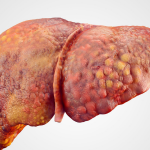Childhood Kidney Disease: A Comprehensive Approach Holds Promise
JENNA HENDERSON, ND
One of the greatest challenges in clinical practice is treating resistant nephrotic syndrome in children. Protein in the urine is the defining feature of kidney inflammation and is often apparent clinically as visibly foamy urine. Nephrotic syndrome at any age tends to present with edema, fatigue, hypercholesterolemia, and mildly elevated blood pressure. With children, however, there is the additional problem of stunted growth and delayed puberty.
The most common type of nephrotic syndrome in children is Minimal Change Nephrotic Syndrome (MCNS),1 which fortunately does not cause permanent scarring to the kidney tissue. MCNS usually responds well to conventional steroid treatment, although there is often frequent relapsing and the danger of steroid dependency. Most cases of childhood nephrotic syndrome are considered to be Minimal Change. It is usually when the patient is unresponsive to steroids that a biopsy is considered in order to look for evidence of some type of kidney ailment other than Minimal Change.
Other types of nephrotic syndrome are less benign than Minimal Change and may cause long-term kidney damage. Nephrotic syndrome can be part of a systemic condition that affects more than the kidneys, including diabetes, Henoch-Schönlein purpura, HIV, or autoimmune conditions such as systemic lupus erythematosus.1 It can also be due to a condition specific to the kidney, such as Focal Segmental Glomerulosclerosis (FSGS),1 IgA nephropathy,2 or C3 nephropathy.3 These conditions are more worrisome and may cause diminished kidney filtration over time.
Causes of Nephrotic Syndrome
Nephrotic syndrome occurring very early in life (within the first few months) may indicate a genetic issue with genes that code for podocyte proteins.4 Another easily identifiable cause of nephrotic syndrome is untreated strep throat.5 However, most cases of nephrotic syndrome are officially classified as idiopathic.
Parents are usually eager to find the root cause of nephrotic syndrome; however, more often than not, it is a case of several predisposing factors rather than a single clear-cut cause. A lack of vitamin D may be a factor, as nephrotic syndrome appears to be more prevalent in parts of the world with less sunlight.6 Insomnia is common in nephrotic syndrome patients, with many of them finding it difficult to fall asleep (sleep-onset insomnia) or having a late sleep cycle (going to bed late and waking late in the day.)7 Animal research suggests that mercury, such as in amalgam fillings, can be an etiological factor in kidney inflammation.8 Diet may also play a part; however, in practice, elimination diets alone usually are not enough to stop chronic proteinuria.
A possible link between autoimmune diseases and vaccination is controversial. In practice, some parents have reported that the onset of nephrotic syndrome, or an exacerbation of existing nephrotic syndrome, took place immediately after a vaccination. This might lead one to speculate about the possibility of excessive immune stimulation or side-effects of toxic adjuvants.9 A potential link could be the subject of further study.
Treatment of Nephrotic Syndrome
Unhelpful Therapies
The vitamin supplement industry has a tendency to throw together all-things-renal in a single kidney formula. Unfortunately, most of those substances do not target nephrotic syndrome. For example, cranberry and D-mannose can help a urinary tract infection (UTI), but nephrotic syndrome is not a UTI. While diabetes is the most common cause of kidney failure, most nephrotic syndrome patients are not diabetic. Those that are diabetic are often concerned about possible short-term elevations in blood sugar from steroids or other immune suppressants; however, it’s important to realize that diabetic formulas will not treat the underlying kidney inflammation.
“Kidney cleanses” – usually diuretic teas – have an aquaretic effect, which may alleviate the symptom of edema but do nothing to decrease kidney inflammation. Nephrotic syndrome patients generally do not need an aggressive detox. It is only in late-stage kidney disease that creatinine rises and uremic toxicity becomes an issue. Strategies that may help in late-stage kidney disease, such as limiting potassium, are useless and even harmful with early-stage kidney disease.
Useful Strategies for Childhood Nephrotic Syndrome
Check Thyroid Function
Nephrotic syndrome can directly affect growth and development as albumin is lost in the urine. Levels of peptide hormones are often significantly lower in children with nephrotic syndrome, especially thyroid hormones.10 Significant decreases in serum thyroxine (T4), triiodothyronine (T3), and thyroid-binding globulin (TBG) have been noted in children with nephrotic syndrome, compared with age-matched controls and patients in remission.11 If the thyroid is tested at all, it is often just with thyroid-stimulating hormone (TSH) and maybe free T4 (fT4). This would miss a low fT3. In a case study, addressing low thyroid in nephrotic syndrome was shown to help bring about remission from proteinuria.12
Address Insomnia
As mentioned, insomnia often coexists with nephrotic syndrome and low kidney function. Parents should be concerned if their child is staying awake past midnight on a routine basis. Routine loss of sleep is one of the more reliable indicators that one is at risk for developing kidney problems.7 Melatonin, like many other peptide hormones, is often deficient in patients with nephrotic syndrome.13 In a rat model, supplementation with melatonin was shown to directly improve kidney function and reduce proteinuria.14 A low dose of melatonin is considered safe for children to take15 and will also help promote healthy bone development.16
In my opinion, intermittent melatonin (every other night or 3 times per week) may be preferable to nightly melatonin. This is because negative feedback with this hormone might have the effect of suppressing endogenous production. For babies and very young children, cherries or cherry juice in the evening may supply a very low dose of melatonin that works well.17 For older children, a very low dose (eg, 0.5 mg) 3 nights per week may improve kidney health.
Ensure Optimal Vitamin D
Low vitamin D is common in nephrotic syndrome, similar to many autoimmune conditions.18 Sunlight is the best source of vitamin D, although supplementation may be necessary. It’s good to check vitamin D levels before beginning supplementation. As with most nutrients, there is an optimal range for vitamin D. Too much vitamin D increases absorption of phosphorus, which can put more stress on the kidneys.
Increase Magnesium
Low magnesium levels are very common in pediatric nephrotic syndrome.19,20 The anti-inflammatory effects of magnesium may help reduce nephritis. A practitioner could check RBC magnesium, or else dose it to bowel tolerance.
Increase Zinc
Zinc levels tend to be low in patients with nephrotic syndrome.21 Zinc is bound to albumin and is lost in the urine along with protein in nephrotic syndrome. The mineral is essential to proper immune function, and supplementing zinc might help maintain remission in nephrotic syndrome once it has been attained.22
Balance Fatty Acids
As the kidneys are one of the fattiest tissues in the body, the quality of lipids in the diet has an enormous impact on kidney health. Omega-3 fatty acids from fish oil or flaxseed oil can be effective at reducing proteinuria.23 Omega-3 supplementation will not only reduce the nephritis; it has also been shown in mice to support bone development.24 When choosing a fish oil supplement, I recommend one with EPA and DHA; however, I avoid krill oil, which is higher in phosphorus.
While increasing the omega-3 intake, I seek to decrease the omega-6 intake, which I’ve often found to be high in these children. Omega-6 consumption is known to encourage the production of proinflammatory prostaglandins, and it has been shown in dogs with renal insufficiency to increase kidney damage.25 Many parents believe that high-omega-6 oils, such as canola, soy, corn, vegetable, safflower and sunflower, avocado, and almond oils, represent healthy choices for their children. Cooking oils with a healthier omega-6/omega-3 ratio include olive oil, hemp oil, macadamia oil, and butter. A high intake of many types of nuts should be avoided, as this can also tip the balance toward higher omega-6.
Address Kidney Permeability
Nephrotic syndrome is associated with increased permeability of the kidney membrane, which allows protein to leak into the urine.26 Although Ginkgo biloba is not typically thought of as a kidney herb, ginkgo has been shown to reduce permeability and proteinuria in nephrotic syndrome.26 It has also been shown to reduce the high cholesterol that accompanies nephrotic syndrome.27 Ginkgo has the additional advantage of not interfering with medications commonly prescribed for nephrotic syndrome.
Employ Enzyme Therapy
Bromelain and other anti-inflammatory proteolytic enzymes may help reduce proteinuria in nephrotic syndrome. This was confirmed in a Russian study, which found that a popular proprietary mixture of enzymes was especially effective at inhibiting nephrosclerosis.28 These products should be taken on an empty stomach. They should be swallowed whole, which may not be easy for very young children. Opening bromelain capsules and mixing the contents in water often leads to an unpleasant burning sensation on the tongue. If the parents of young children are able to juice fresh pineapple, this can be a more palatable way to supply beneficial bromelain.
Avoid Silicon Dioxide
Industrial silica exposure can lead to immune-mediated kidney disease.29 Could silicon dioxide, a common additive in supplements, be implicated in autoimmune conditions including some cases of nephrotic syndrome? Since silicon dioxide (a major component of sand) can activate various immune cells, research into the associated imbalances of regulatory T-cells, responder T-cells, and Th17 cells could help further our understanding of silica-induced autoimmune alterations.30 In practice, replacing supplements containing silicon dioxide with ones that are silicon-dioxide-free may ameliorate proteinuria.
Address Maternal Anxiety
There are few things more anxiety-provoking for a parent than kidney disease in their child. Although children are often resilient while facing nephrotic syndrome, the stress on parents can take its toll. Parents are often exhausted and financially stressed and neglect their own needs.31 This can, in turn, promote anxiety in the child. Interestingly, Traditional Chinese Medicine correlates fear and anxiety with kidney issues. One study showed that high maternal anxiety correlated to behavioral problems and worse school performance in children with nephrotic syndrome.32
Consider Water Immersion Therapy
The symptom of edema often leads to the use of high-dose diuretics. Even with salt restriction, many patients have issues with intractable edema. Another way to alleviate edema is to place the child in a deep water bath for an extended length of time, which increases water and sodium excretion.33
Treatment of Specific Types
There are many supplements that can help reduce proteinuria. It’s good to check for potential interactions with prescription medications. Here are some natural agents that have been found to be especially helpful in practice:
- FSGS: Ganoderma lucidum (reishi) may reduce proteinuria in FSGS patients.34 As Minimal Change is very similar to FSGS, this agent is useful for treating MCNS as well.
- IgA Nephropathy: This type of nephrotic syndrome was shown in a mouse model to respond well to Cordyceps sinensis mushrooms.35 A gluten-free diet does not help all cases of nephrotic syndrome; however, a mouse study indicated that it might help reduce inflammation in IgA nephropathy.36
- C3 Nephropathy: Various animal studies have shown that Boswellia serrata inhibits the activation of C337; thus, it may help reduce proteinuria
- Lupus Nephritis: Cordyceps and artemisinin were shown in a Chinese study to reduce lupus nephritis in patients38
- Henoch-Scholein Purpurea: Triptolide, an extract from the herb Tripterygium wilfordii, more commonly known as Thunder God Vine, was shown to be help counteract moderately-severe Henoch-Schönlein purpura nephritis in Chinese children.39 Used in combination with Salvia miltiorrhiza, it was even more effective.40
Conclusion
Minimal Change is the most common type of nephrotic syndrome in children, but other types of nephrotic syndrome can also be found in the pediatric population. Nephrotic syndrome is often a very persistent condition, and many children will have frequent relapses before the situation is completely resolved. Naturopathic care can offer effective adjunct therapy and help reduce reliance on steroids and prescription immunosuppressants. Over time, the relapses may be less frequent and less severe.
References:
- Tidy C. Nephrotic Syndrome. Last edited November 10, 2016. Patient. Available at: https://patient.info/kidney-urinary-tract/glomerulonephritis-leaflet/nephrotic-syndrome. Accessed June 26, 2021.
- Herlitz LC, Bomback AS, Stokes MB, et al. IgA nephropathy with minimal change disease. Clin J Am Soc Nephrol. 2014;9(6):1033-1039.
- Viswanathan GK, Nada R, Kumar A, et al. Clinico-pathologic spectrum of C3 glomerulopathy-an Indian experience. Diagn Pathol. 2015;10:6.
- Hinkes BG, Mucha B, Vlangos CN, et al. Nephrotic syndrome in the first year of life: two thirds of cases are caused by mutations in 4 genes (NPHS1, NPHS2, WT1, and LAMB2). Pediatrics. 2007;119(4):e907-e919.
- Rawla P, Padala SA, Ludhwani D. Poststreptococcal Glomerulonephritis. Last updated March 29, 2021. In: StatPearls [Internet]. Treasure Island, FL: StatPearls Publishing; 2021 Jan-. Available at: https://www.ncbi.nlm.nih.gov/books/NBK538255/. Accessed June 26, 2021.
- Weng FL, Shults J, Herskovitz RM, et al. Vitamin D insufficiency in steroid-sensitive nephrotic syndrome in remission. Pediatr Nephrol. 2005;20(1):56-63.
- Yamamoto R, Nagasawa Y, Iwatani H, et al. Self-reported sleep duration and prediction of proteinuria: a retrospective cohort study. Am J Kidney Dis. 2012;59(3):343-355.
- Sun L, Li X, Shang L, ZhenY. Mechanism of renal injury and apoptosis in rats with nephrotic syndrome induced by mercury. Zhonghua Lao Dong Wei Sheng Zhi Ye Bing Za Zhi. 2020;38(1):13-19. [Article in Chinese]
- Boyer O, Baudouin V, Bérard E, et al. Idiopathic nephrotic syndrome. Arch Pediatr. 2017;24(12):1338-1343. [Article in French]
- Singh S, Mishra OP, Mandal PP, et al. Thyroid function in patients with idiopathic nephrotic syndrome. Int Urol Nephrol. 2021 Jan 11. doi: 10.1007/s11255-020-02778-3. [Epub ahead of print]
- Ito S, Kano K, Ando T, Ichimura T. Thyroid function in children with nephrotic syndrome. Pediatr Nephrol. 1994;8(4):412-415.
- Kano K, Hagane M, Ito S, Ichimura T. Thyroid therapy for a boy with nephrotic syndrome. J Jpn Pediatr Soc. 1993;97:1298.
- Russcher M, Koch B, Nagtegaal E, et al. The role of melatonin treatment in chronic kidney disease. Front Biosci (Landmark Ed). 2012;17:2644-2656.
- Quiroz Y, Ferrebuz A, Romero F, et al. Melatonin ameliorates oxidative stress, inflammation, proteinuria and progression of renal damage in rats with renal mass reduction. Am J Physiol Renal Physiol. 2007;294(2):F336-F344.
- Sánchez-Barceló EJ, Mediavilla MD, Reiter RJ. Clinical uses of melatonin in pediatrics. Int J Pediatr. 2011;2011:892624.
- Liu J, Huang F, He HW. Melatonin effects on hard tissues: bone and tooth. Int J Mol Sci. 2013;14(5):10063-10074.
- Howatson G, Bell PG, Tallent J, et al. Effect of tart cherry juice (Prunus cerasus) on melatonin levels and enhanced sleep quality. Eur J Nutr. 2012;51(8):909-916.
- Selewski DT, Chen A, Shatat IF, et al. Vitamin D in incident nephrotic syndrome: a Midwest Pediatric Nephrology Consortium study. Pediatr Nephrol. 2016;31(3):465-472.
- Teslariu O, Mititelu-Tarţău L, Stârcea M. Magnesium in Pediatric Nephrotic Syndrome. Rev Med Chir Soc Med Nat Iasi. 2016;120(4):818-823.
- Chaudury GN, Hanif M. Serum Magnesium Level in Hospitalized Nephrotic Syndrome Patients and Its Relation to Cholesterol. IRDEM Med J. 2017;7(1):12-16.
- Taherahmadi H, Yousefichaijan P, Rezagholizamenjany M, et al. Serum Zinc Level in Recurrent Nephrotic Syndrome. Nephrourol Mon. 2019;11(4):e96628. Available at: https://sites.kowsarpub.com/num/articles/96628.html. Accessed June 26, 2021.
- Arun S, Bhatnagar S, Menon S, et al. Efficacy of zinc supplements in reducing relapses in steroid-sensitive nephrotic syndrome. Pediatr Nephrol. 2009;24(8):1583-1586.
- Hu J, Liu Z, Zhang H. Omega-3 fatty acid supplementation as an adjunctive therapy in the treatment of chronic kidney disease: a meta-analysis. Clinics (Sao Paulo). 2017;72(1):58-64.
- Rozner R, Vernikov J, Griess-Fishheimer S. The Role of Omega-3 Polyunsaturated Fatty Acids from Different Sources in Bone Development. Nutrients. 2020;12(11):3494.
- Brown SA, Brown CA, Crowell WA, et al. Effects of dietary polyunsaturated fatty acid supplementation in early renal insufficiency in dogs. J Lab Clin Med. 2000;135(3):275-286.
- Rostoker G, Behar A, Lagrue G. Vascular hyperpermeability in nephrotic edema. Nephron. 2000;85(3):194-200.
- Zhong ZM, Yu L, Weng ZY, et al. Therapeutic effect of Ginkgo biloba leaf extract on hypercholestrolemia in children with nephrotic syndrome. Nan Fang Yi Ke Da Xue Xue Bao. 2007;27(5):682-684. [Article in Chinese]
- Mukhin IV. Fibronectin content in the urine of patients with chronic glomerulonephritis as a test for the efficiency of treatment. Klin Lab Diagn. 2001;(4):53-55. [Article in Russian]
- Ghahramani N. Silica nephropathy. Int J Occup Environ Med. 2010;1(3):108-115.
- Lee S, Hayashi H, Mastuzaki H, et al. Silicosis and autoimmunity. Curr Opin Allergy Clin Immunol. 2017;17(2):78-84.
- Geense WW, van Gaal BGI, Knoll JL, et al. The support needs of parents having a child with a chronic kidney disease: a focus group study. Child Care Health Dev. 2017;43(6):831-838.
- Mehta M, Bagga A, Pande P, et al. Behavior problems in nephrotic syndrome. Indian Pediatr. 1995;32(12):1281-1286.
- Berlyne GM, Brown C, Adler A, et al. Water immersion in nephrotic syndrome. Arch Intern Med. 1981;141(10):1275-1278.
- Futrakul N, Panichakul T, Butthep P. Ganoderma lucidum suppresses endothelial cell cytotoxicity and proteinuria in persistent proteinuric focal segmental glomerulosclerosis (FSGS) nephrosis. Clin Hemorheol Microcirc. 2004;31(4):267-272.
- Xiao C, Xiao P, Li X, et al. Cordyceps sinensis may inhibit Th22 cell chemotaxis to improve kidney function in lgA nephropathy. Am J Transl Res. 2018;10(3):857-865.
- Coppo R, Mazzucco G, Martina G, et al. Gluten-induced experimental IgA glomerulopathy. Lab Invest. 1989;60(4):499-506.
- Ammon HP. Modulation of the immune system by Boswellia serrata extracts and boswellic acids. Phytomedicine. 2010;17(11):862-867.
- Lu L. Study on effect of Cordyceps sinensis and artemisinin in preventing recurrence of lupus nephritis. Zhongguo Zhong Xi Yi Jie He Za Zhi. 2002;22(3):169-171. [Article in Chinese]
- Wu L, Mao J, Jin X. Efficacy of triptolide for children with moderately severe Henoch-Schönlein purpura nephritis presenting with nephrotic range proteinuria: a prospective and controlled study in China. Biomed Res Int. 2013;2013:292865.
- Zhu TF, Chu ZF, Li JH. Effect of tripterygium glycosides and Danshen injection on blood coagulation mechanism in children with allergic purpura nephritis. Zhongguo Zhong Yao Za Zhi. 2016;41(11):2162-2167. [Article in Chinese]

Jenna Henderson, ND is a naturopathic doctor whose practice, Holistic Kidney, is dedicated to the unique needs of renal patients. A kidney patient, herself, since 1993, she has experienced all stages of kidney disease firsthand. Dr. Henderson has lectured extensively across the United States to naturopathic doctors, kidney patients, and kidney professionals. She seeks to bridge the gap between mainstream nephrology and natural medicine. In her practice, Dr. Henderson helps patients sort through often-conflicting information to understand what is appropriate for their individual needs and stage of kidney function.









